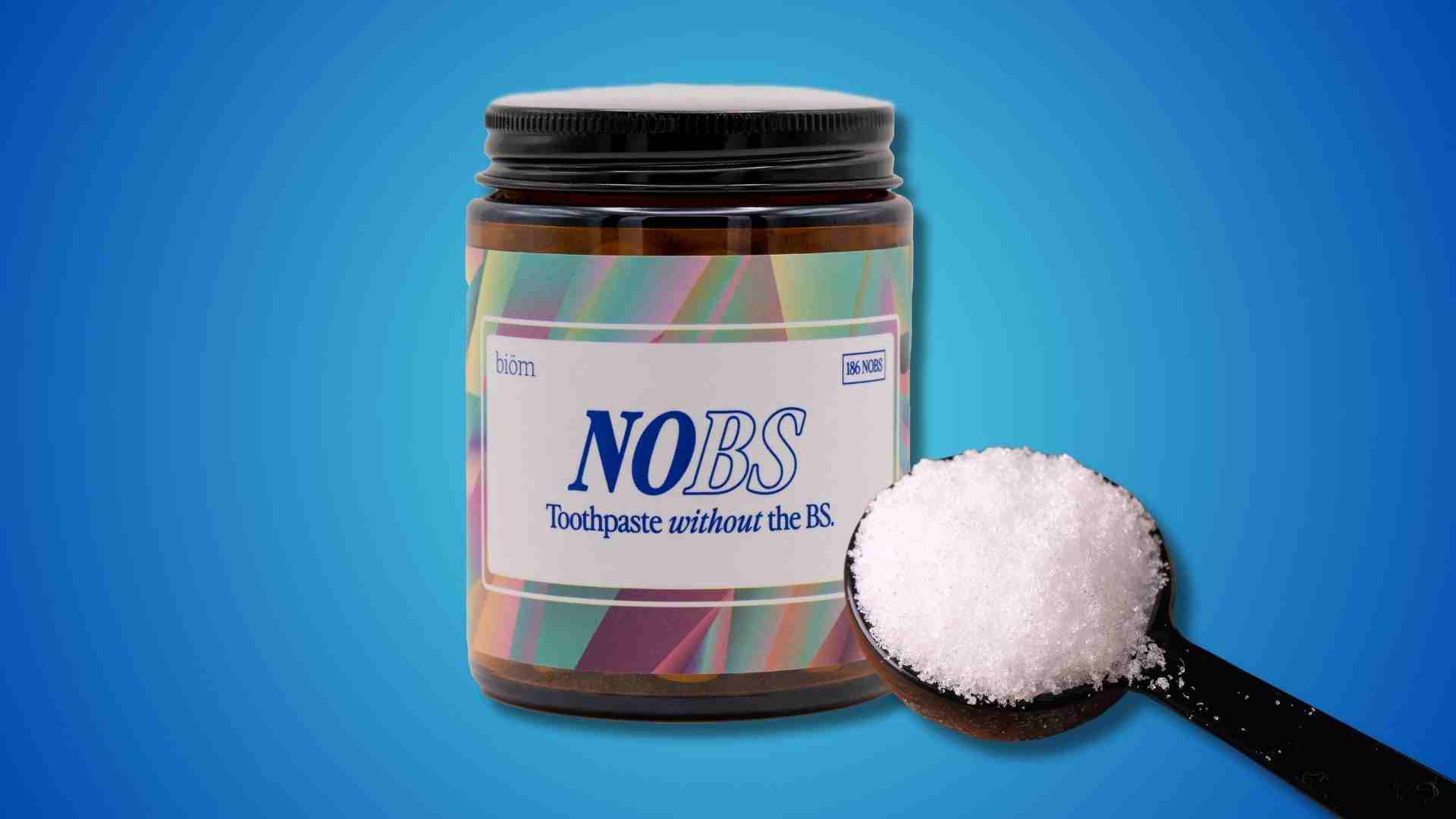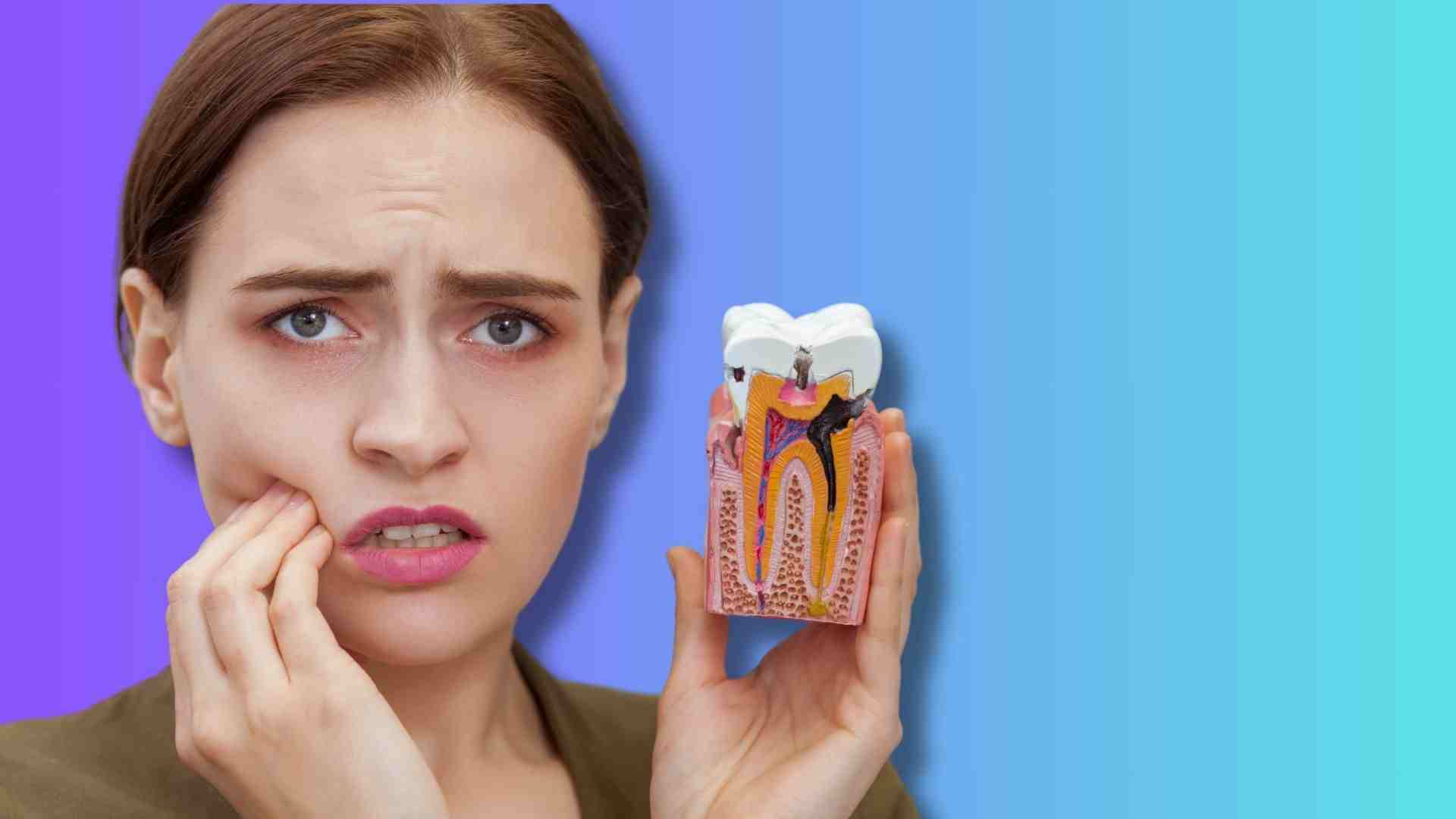Xylitol Cavities Reverse: Fact or Fiction?
The idea that xylitol can reverse cavities is more fiction than fact. You see, xylitol is beneficial in preventing the formation of new cavities by inhibiting the growth of Streptococcus mutans, the bacteria primarily responsible for tooth decay.
It reduces the ability of these bacteria to adhere to teeth and metabolize sugars into harmful acids. Additionally, xylitol promotes saliva production, which can help neutralize acids in our mouths and provide minerals necessary for the remineralization of early enamel lesions.
However, once a cavity has formed, meaning that there is a physical breakdown in the tooth structure, xylitol can't regenerate lost tooth enamel or dentin. The reversal of existing cavities requires professional dental intervention, such as fillings or crowns, to restore the tooth's integrity.
While xylitol can support the remineralization of tooth enamel in its early stages of demineralization, it can't repair cavities that have progressed to the point of creating a hole or significant damage in the tooth.
In this article, I'll explain everything you need to know about the benefits of xylitol as it related to cavities and some other amazing effects.
What is xylitol toothpaste?
Xylitol toothpaste is a type of dental care product that incorporates xylitol as a key ingredient. Why xylitol?
Well, xylitol is a sugar alcohol used as a natural sweetener and for oral health benefits. Unlike traditional sugars, xylitol in toothpaste doesn't contribute to cavities. Instead, it actively combats the growth of cavity-causing bacteria in our mouths, particularly mutans streptococci, and is known for its efficacy at preventing dental caries.
This is the bacteria is responsible for producing the acidic by-products that lead to tooth decay. Xylitol works by inhibiting these bacteria, thereby reducing plaque formation and lowering your risk of dental cavities.
In addition to its antibacterial properties, xylitol also enhances saliva production, which is important for maintaining oral health. Increased saliva flow helps neutralize acids in our mouths, wash away food debris, and facilitates enamel remineralization, which can further protect against demineralization decay.
In addition to toothpaste, you can also find xylitol in other oral health products, like xylitol chewing gum and breath mints which can prevent tooth decay.
How does xylitol toothpaste work?
Xylitol toothpaste harnesses the power of xylitol, a naturally occurring sugar alcohol, to significantly enhance your oral health.
Unlike traditional sugars that feed the harmful bacteria in your mouth, xylitol works differently. It actively inhibits the growth of Streptococcus mutans, the bacteria primarily responsible for tooth decay. This is a cavity prevention process.
This means that when you brush with xylitol toothpaste, you're not just cleaning your teeth; you're also reducing the bacterial population that can cause cavities. Further, xylitol doesn't get broken down into acids by these bacteria, so it helps maintain a neutral pH level in your mouth, protecting your enamel from erosion.
Another remarkable benefit of using xylitol toothpaste is its ability to stimulate saliva production. A well-hydrated mouth is crucial for maintaining oral health, as saliva washes away food particles and bacteria, neutralizes harmful acids, and aids in the remineralization process of your teeth.
This makes xylitol toothpaste especially beneficial for those suffering from dry mouth, enhancing the natural protective mechanisms of your saliva. Additionally, because xylitol reduces plaque formation by making it harder for bacteria to stick to your teeth, you're less likely to develop gum disease and cavities.
How long does it take for xylitol to work for teeth?
Xylitol’s benefits for teeth can start within a few weeks of consistent use, though results may vary depending on individual oral health.
Research indicates that it reduces cavity-causing bacteria by preventing them from sticking to teeth and gums.
Over time, this helps lower plaque buildup and improve oral hygiene. In fact, a research paper found that regular xylitol use can significantly enhance dental health in 2-4 weeks.
Additionally, xylitol works best when included in a routine with gum, mints, or toothpaste.
With consistent use, it promotes long-term enamel health and supports a cleaner, healthier mouth.
Does xylitol prevent cavities?

Yes, xylitol toothpaste can help prevent cavities.
Xylitol works by inhibiting the growth of Streptococcus mutans, the primary bacteria responsible for cavities and dental decay. Unlike regular sugar, which these bacteria metabolize to produce acid that erodes tooth enamel, xylitol does not provide a food source for them.
By reducing acid production, xylitol protects our enamel and can prevent demineralization, tooth decay, and eventual cavity formation. Additionally, xylitol has been shown to enhance the remineralization potential of fluoride only toothpaste which can further prevent cavities and strengthen tooth enamel.
Further, studies support the efficacy of xylitol in oral care. Regularly using xylitol-containing toothpaste contributes to a significant reduction in dental caries incidence and plaque formation.
Does xylitol reverse cavities?
No, while xylitol toothpaste is good for your teeth, it does not reverse cavities. This is because you cannot remineralize a cavity once it has already formed.
That said, xylitol toothpaste can help in the early stages of cavity formation by promoting remineralization, a process where minerals are redeposited in demineralized tooth enamel. Xylitol increases saliva production, which is rich in minerals like calcium and phosphate that can strengthen tooth enamel and potentially reverse early enamel erosion.
This process can prevent smaller cavities from progressing past the initial stages of tooth decay. However, xylitol toothpaste cannot reverse cavities that have progressed beyond the initial stage of enamel demineralization to form a physical cavity.
Once a cavity has fully formed, you'll have to see a dentist for professional treatment to remove the decay and restore the tooth.
So, while xylitol toothpaste is great for supporting your overall oral health and reversing the early stages of tooth decay, it's not a substitute for professional treatment of established cavities.
Does xylitol prevent tooth decay?

Yes, xylitol can help prevent tooth decay. When you use products containing xylitol, such as toothpaste or gum, you're actively fighting against the primary culprits of tooth decay: harmful bacteria in your mouth.
Xylitol works by inhibiting the growth of Streptococcus mutans, the bacteria that play a significant role in tooth decay. Unlike regular sugar, which these bacteria metabolize into acid that erodes tooth enamel, xylitol doesn't provide a food source for them.
This reduction in acid production helps protect your enamel from decay.
Additionally, xylitol boosts saliva production, which is crucial for neutralizing acids, washing away food particles, and delivering minerals that help repair and strengthen our enamel.
Benefits of Xylitol Toothpaste

Xylitol offers many benefits for our oral health, making it a standout ingredient in toothpaste and other dental care products. Let's walk through 5 of the most important benefits together.
Prevents Cavities
One of the most celebrated benefits of xylitol is its ability to prevent cavities.
Xylitol works by inhibiting the growth of Streptococcus mutans, a cariogenic bacteria primarily responsible for tooth decay. Unlike regular sugars that feed harmful oral bacteria, xylitol can't be metabolized by these bacteria, thereby reducing their growth and the acids they produce that wear away at enamel.
Research suggests that regularly using xylitol toothpaste can significantly lower your risk of developing dental cavities, offering a proactive approach to oral health.
Reduces Plaque
Plaque buildup is a major contributing factor to dental health issues, including cavities and gum disease. Thankfully, xylitol is known for its ability to reduce the amount of plaque-forming bacteria in our mouths.
Since xylitol doesn't serve as a food source for these bacteria, their ability to stick to teeth and form plaque is diminished. This process helps keep your teeth cleaner and healthier, reducing the likelihood of oral health problems down the line.
Enhances Saliva Production

Saliva is a natural defense mechanism against tooth decay, and xylitol helps enhance its production. By stimulating saliva flow, xylitol helps neutralize acids in the mouth, washing away food particles, and keeping the mouth moist.
This increased saliva production is particularly beneficial for those of us suffering from dry mouth, a condition that can increase the risk of tooth decay and gum disease.
Remineralizes Teeth
Remineralizing teeth is one of the most important benefits of xylitol. Your saliva, stimulated by xylitol is rich in important minerals like calcium and phosphate which your body uses to remineralize, repair, and strengthen your enamel.
This process not only reverses tooth decay but also fortifies your teeth against future erosion.
Tastes Great
Beyond its health benefits, xylitol is naturally sweet and adding it to toothpaste makes it more enjoyable to brush with, especially for children and those who are sensitive to the taste of traditional toothpaste.
This pleasant taste encourages regular brushing and contributes to better oral hygiene without the negative effects of sugar.
Side Effects of Xylitol Toothpaste

While xylitol toothpaste is widely regarded for its oral health benefits, there are a few potential side effects to be aware of. Let's walk through some of the potential consequences of xylitol, largely related to gastrointestinal effects and its impact on individuals with certain sensitivities.
Gastrointestinal Discomfort
Xylitol can cause gastrointestinal discomfort for some people, especially when swallowed in large quantities.
This is because xylitol is a sugar alcohol, which can be difficult for the body to digest if consumed in significant quantities. Symptoms may include bloating, gas, and diarrhea.
However, the amount of xylitol present in toothpaste is typically small, and since you don't ingest toothpaste, this side effect is more commonly associated with xylitol in food products rather than in dental care products.
Allergic Reactions
Although rare, some individuals may experience allergic reactions to xylitol. Symptoms could include itching, swelling, or irritation in the mouth or throat.
Anyone known to have allergies to sugar alcohols or specific sensitivities should proceed with caution and consul their dentist if they suspect an allergic reaction to xylitol toothpaste.
Toxicity in Pets
It's important to note that while xylitol is safe for human use, it is highly toxic to dogs and certain other pets. Even small amounts can cause hypoglycemia (low blood sugar), seizures, liver failure, or even death in dogs. Therefore, you should keep products containing xylitol, including toothpaste, out of reach of pets.
How often should I use xylitol toothpaste?

For optimal benefits, you should use xylitol toothpaste tablets at least twice a day as part of your regular oral hygiene routine.
Brushing your teeth in the morning and before bed with xylitol toothpaste can help reduce harmful bacteria in your mouth, decrease plaque buildup, and stimulate saliva production, which is essential for neutralizing acids and aiding in the remineralization of your teeth.
Consistently using xylitol toothpaste is the key to getting the full benefits of preventing tooth decay.
Additionally, you can also consider complementing your oral care routine by chewing xylitol gum. When you chew xylitol gum, especially after a meal or snack, you can further inhibit bacterial growth and maintain your oral health throughout the decay.
Of course, you should also regularly use dental floss and tongue scrapers to keep your smile in tip-top shape.
What does xylitol toothpaste not do?

While xylitol toothpaste offers several benefits for oral health, there are certain things it does not do:
-
Does Not Replace Nano Hydroxyapatite: Xylitol toothpaste does not replace the benefits of nano hydroxyapatite in toothpaste, which strengthens tooth enamel and helps repair early tooth decay. If your toothpaste only contains xylitol and lacks nano hydroxyapatite, you might not receive the full protective effects against cavities that nHA offers. Thankfully, NOBS Toothpaste Tablets offer both.
-
Does Not Eliminate All Types of Oral Bacteria: While xylitol is effective against Streptococcus mutans, the primary bacteria responsible for cavities, it doesn't eliminate all types of oral bacteria. A comprehensive oral hygiene routine, including mechanical cleaning through brushing and flossing, is necessary to manage the broader spectrum of bacteria in our mouths.
-
Does Not Heal Cavities: Xylitol toothpaste can help prevent new decay by reducing harmful bacteria and supporting a healthier oral environment, but it cannot heal existing cavities. Since you can't remineralize a cavity once it has fully formed, once a cavity has formed, you'll need professional dental treatment to restore the tooth.
-
Does Not Treat Gum Disease: Although xylitol can help reduce plaque, which is a contributing factor to gum disease, it is not a treatment for existing gum disease. You'll need professional care and specific treatments to address gum disease effectively.
Understanding these limitations is important when incorporating xylitol toothpaste into your oral care routine.
How to Reverse Tooth Decay

Reversing tooth decay, particularly in its early stages, is possible through a combination of preventive measures and oral care practices such as:
-
brushing with nano hydroxyapatite toothpaste twice daily
-
using expandable floss to remove bacteria from between your teeth and along the gumline
-
regularly tongue scraping to remove harmful bacteria
-
quitting smoking
-
and reducing your consumption of acidic and sugary foods.
That said, it's important to note that while remineralizing tooth decay is possible, once demineralization progresses to a cavity, it is no longer possible to heal it. At that point, you would need to see a dentist for professional treatment.
Frequently Asked Questions
Can you reverse cavities with xylitol?
While xylitol can help prevent cavities by inhibiting the growth of cavity-causing bacteria and promoting saliva production, it cannot reverse existing cavities. Once a cavity has formed, it requires professional dental treatment such as fillings or other restorative procedures to halt further decay and restore the tooth's structure. However, incorporating xylitol into your oral hygiene routine may still be beneficial for overall dental health. Always consult with your dentist for personalized advice on cavity prevention and treatment.
Can xylitol help remineralize teeth?
Yes, xylitol can help remineralize teeth. Research suggests that xylitol not only directly contributes to tooth remineralization but also indirectly enhances the process. By reducing levels of decay-causing bacteria and depriving them of fermentable sugars needed for acid production, xylitol helps maintain a favorable pH balance in the mouth. This alkaline environment supports the deposition of essential minerals like calcium and phosphate into tooth enamel, promoting remineralization and overall dental health.
Does anything reverse cavities?
Once a cavity has formed, it cannot be reversed without professional dental intervention. Cavities are essentially permanent damage to the tooth enamel caused by decay. However, early-stage cavities may be halted or slowed through remineralization treatments provided by dentists or through the use of fluoride products, which can help strengthen enamel and prevent further decay. It's crucial to address cavities promptly to prevent them from worsening and requiring more extensive treatment such as fillings or root canals. Regular dental check-ups and good oral hygiene practices can help catch cavities early and prevent their progression.
Is xylitol gum good for cavities?
Xylitol gum can be beneficial for cavity prevention due to its ability to inhibit the growth of cavity-causing bacteria and stimulate saliva production. Chewing xylitol gum after meals can help neutralize acids in the mouth and reduce the risk of cavities. However, while xylitol gum can be a helpful addition to oral hygiene routines, it's important to remember that it's not a substitute for regular brushing, flossing, and professional dental care. Using xylitol gum as part of a comprehensive oral care regimen may contribute to better dental health and cavity prevention.
What gum kills cavity bacteria?
Xylitol gum is often touted for its ability to help inhibit the growth of cavity-causing bacteria. While it doesn't directly "kill" these bacteria, xylitol disrupts their metabolic processes, particularly that of Streptococcus mutans, a major contributor to tooth decay. Chewing xylitol gum after meals can create an environment in the mouth that is less conducive to bacterial growth, thus reducing the risk of cavities. However, it's important to remember that xylitol gum is just one component of a comprehensive oral hygiene routine, which should also include regular brushing, flossing, and dental check-ups.
Can xylitol reverse receding gums?
Xylitol cannot reverse receding gums. Receding gums occur due to various factors such as gum disease, genetics, aggressive brushing, or poor oral hygiene. While xylitol may help prevent gum disease by reducing bacterial growth and promoting saliva production, it cannot reverse the damage already done to receded gums. Treatment for receding gums typically involves professional interventions such as scaling and root planing, gum grafting, or other periodontal procedures. It's important to consult with a dentist for personalized treatment options if you're experiencing receding gums.
Can tooth decay cause bad breath?
Yes, tooth decay can cause bad breath. When cavities form, bacteria break down food particles, producing foul-smelling compounds. The decayed tooth material can also harbor these bacteria, worsening the odor. Proper dental care and treatment of cavities can help eliminate bad breath caused by tooth decay.
Does xylitol cause cavities?
Xylitol is actually known for its cavity-fighting properties rather than causing cavities. It is a sugar alcohol that can inhibit the growth of bacteria in the mouth, particularly Streptococcus mutans, which is a major contributor to tooth decay. Xylitol can help reduce plaque formation and acidity in the mouth, making it less likely for cavities to develop. Many dental products, such as chewing gum and toothpaste, contain xylitol as an active ingredient to promote dental health. However, it's still important to practice good oral hygiene habits to prevent cavities effectively.
Does xylitol whiten teeth?
Xylitol itself doesn't directly whiten teeth but helps maintain oral health by reducing plaque and bacteria, which can contribute to a cleaner appearance. It increases saliva production, helping wash away food particles and acids that stain teeth. Regular use in oral care may support overall dental hygiene, but it's not a direct whitening agent.
Can xylitol heal a cavity?
Xylitol cannot heal an existing cavity, but it can help prevent new ones from forming. Studies suggest that xylitol reduces harmful bacteria in the mouth and promotes saliva production, which can aid in remineralizing early tooth decay. However, for treating actual cavities, professional dental care like fillings is still necessary.
How long does it take for xylitol to work on teeth?
Xylitol can start working quickly to benefit teeth, especially when combined with nano-hydroxyapatite in toothpaste. This combination can help reduce harmful bacteria and promote saliva production almost immediately, aiding in the remineralization of enamel. For optimal results, consistent use is recommended alongside good oral hygiene practices.
Is there any way to reverse cavity damage?
Yes, there are ways to reverse early cavity damage, particularly through remineralization. Using remineralizing toothpaste that contains nano-hydroxyapatite can help strengthen enamel and restore minerals lost due to decay. However, once a cavity progresses beyond the enamel, professional dental treatment is necessary to repair the damage.
Does xylitol repair cavities?
Xylitol does not directly repair cavities but helps prevent them from worsening by reducing cavity-causing bacteria in the mouth. It inhibits bacterial acid production and supports an environment conducive to enamel remineralization. While xylitol strengthens teeth, professional dental treatments are needed to repair existing cavities.
How to quickly remineralize teeth?
To quickly remineralize teeth, use toothpaste with nano-hydroxyapatite or fluoride and eat foods rich in calcium and phosphorus. Avoid sugary and acidic foods that erode enamel and drink fluoridated water to support mineral absorption. Consistent oral hygiene practices, including brushing and flossing, enhance the remineralization process.
Can you remineralize a cavity?
Early-stage cavities, known as enamel lesions, can be remineralized with xylitol, nano-hydroxyapatite toothpaste and a healthy diet. Once a cavity progresses into the dentin, remineralization alone cannot repair it, and a dentist's intervention is required. Regular dental checkups are essential for detecting and treating cavities in their early stages.
How does xylitol get rid of cavities?
Xylitol helps stop cavities by reducing the bad bacteria in your mouth. It stops bacteria from making acid, which can damage your teeth. This helps your teeth stay strong and lowers the risk of decay.
How to quickly remineralize teeth?
To remineralize teeth fast, brush with a toothpaste that has nano-hydroxyapatite. Eat foods rich in calcium and drink plenty of water. Avoid sugary and acidic foods that can wear down enamel.






















